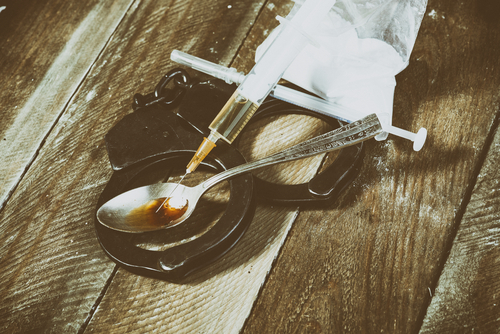Heroin is an opioid drug that is highly addictive and brings about intense feelings of euphoria. Heroin overdoses are very common and taking the lives of many who are untreated. According to the Centers for Disease Control and Prevention, the number of heroin overdoses has quadrupled since 2010. Learning about the life-changing health complications arising from heroin addiction can convince you to get help before this addiction worsens.
Heroin can cause addiction.
Repeated use of heroin can cause an addiction that has the potential for molecular and neurochemical brain changes. You risk a high rate of addiction if you inject or smoke heroin as it will reach the brain the fastest that way. Your behavior changes as well where the only thing you can think of is getting your next fix, pushing your relationships away from you and destroy your health.
Heroin addiction can cause withdrawal symptoms.
When you stop using heroin 24 to 48 hours later, physical symptoms begin to take shape to your body. You can feel restlessness, insomnia, diarrhea, muscle and bone pain, vomiting, and leg movements. These symptoms can stay with you for weeks or even months which is why it is important to see a doctor to treat these symptoms.
Heroin addiction can cause impairments to brain functioning.
Heroin can bring about long impairments to your intelligence. Heroin can affect your working memory, decision making, and episodic memory. This can also impact your impulsivity, verbal functioning, planning, and visual spatial analysis.
Heroin addiction can cause injection-related problems.
Many people administer heroin through needle injection. This can bring a number of problems like clogged blood vessels that are connected to the lungs, liver, kidneys, and brain. This can cause infection or death of small patches of cells in vital organs. Chronic injection heroin users can have abscesses, collapsed veins, and cellulitis.
Heroin addiction can cause liver infections.
Heroin can increase the risks of getting hepatitis B, C, and A. If you are constantly sharing needles with someone, contracting hepatitis B and C is common. Hepatitis A can come from poor hygiene preparing the drug.
Heroin addiction can cause blood-borne viruses.
If you are sharing needles or other types of drug administering equipment for heroin as well as engaging in risky sexual activities can cause you to get HIV. Drug abusers would be able to pass HIV on to their sexual partners as well as their children.
Located in downtown Midland, The Springboard Center’s mission is to offer programs and services to treat alcohol and drug addiction treatment using an evidence based curriculum, 12 step programs, diet, nutrition, exercise, emotional, mental and spiritual development for a long recovery. For more information, please call us at 432-620-0255 as we are open 24 hours a day, 7 days a week.




